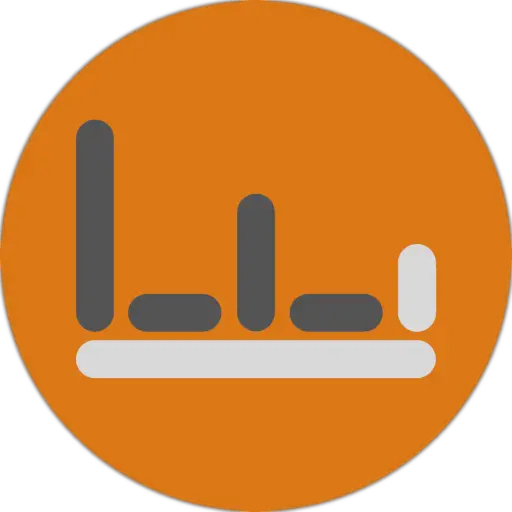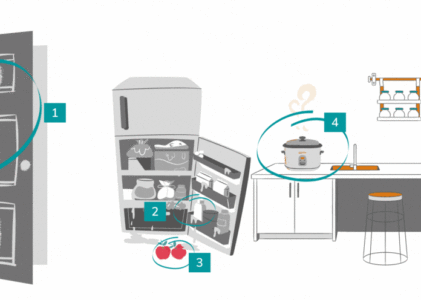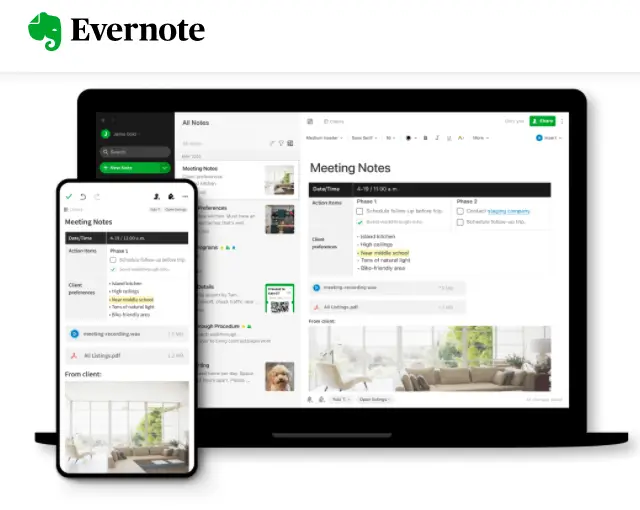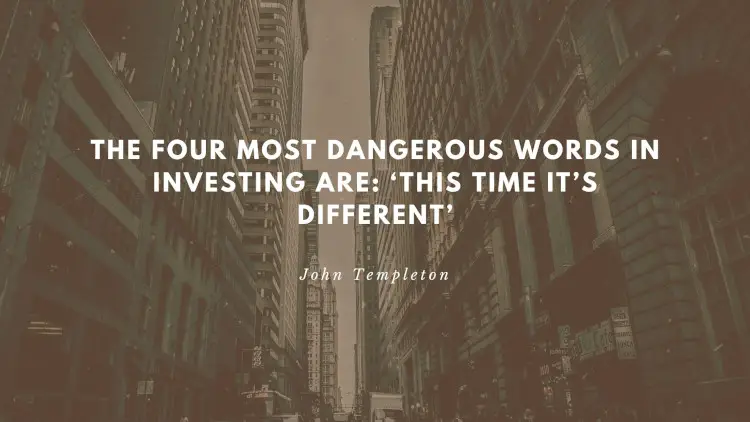I placed 10th in the Real Estate Broker’s Exam in March 2014. On a whim, I took the Real Estate Appraiser’s Exam in July of the same year. I placed 3rd. Let me share my insights of how I topped 2 board exams in a year, despite having no prior knowledge.
This isn’t to brag. The lessons I took from those exams go beyond real estate. And I know it’ll help you do well in your exams, too.
Page Contents
- My background and how YOU can top the board exam
- The one thing you have to have
- Board exam tips and tricks
- 1-month strategy before the board exams
- How to focus on board exam day
- Can a retaker top the board exam?
My background and how YOU can top the board exam
The real estate board exams are somewhat unique. Back then, anyone with a college degree was qualified to take the exams. Now the law requires a real estate-related degree.
So when I took the exams, I was up against people in the industry with actual knowledge — realtors, bankers, lawyers. Lawyers with real estate experience have done particularly well. It’s really because the Broker’s Exam is largely a subset of the Bar Exams, and a bulk of what’s in the Broker’s Exam is on real estate legal matters.
This is why I get more fulfillment in placing Top 10 over Top 3. Prior to taking the exams, I had zero real estate knowledge.
In fact, I took the exams because I wanted to learn real estate.
(Long story short, and a bit off-topic, you don’t need either license to manage a real estate business. And I am NOT a licensed broker nor appraiser.)

The truth is, anyone can do well. You certainly can. I know that for a fact because by searching for this topic (I hope you did), you’re showing signs of the one thing you need to have.
For anyone aiming to pass or top the board exam, these are my tips and tricks in studying for the board exams as well as new techniques I’ve learned since.
The one thing you have to have
I’m about to say something you might think is nonsense. But trust me, it starts with this: You have to believe you’ll do well!
Again, I know how that sounds. But just because it’s a cliche doesn’t make it any less true.
Belief leads to a lot of positive things. For one, it builds confidence. When you’re confident, you’re more likely to research and try to understand a topic. Trying harder naturally increases your chances of understanding. Also when you’re confident, you don’t panic. A calm mind has clarity and a clear mind does better on exam day.
Proof that believing works
I’ve said this narrative in my back story. I was a mediocre student who had average grades and failed a few subjects here and there. In the summer of 2004, after failing my accounting summer class, I took an online IQ test.
It was definitely one of those bogus online tests, but I didn’t know that. The test reported back an above-average IQ. Again, I didn’t know about fake or generic and unscientific tests then (there weren’t too many websites in 2004 for sure), so I believed I had an above-average IQ!
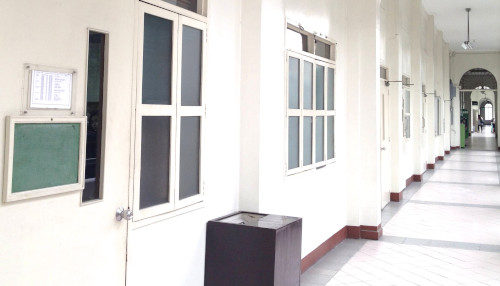
The next school year I aced all my subjects. I went from barely passing an introductory microeconomics course taught by the most beloved professor (who gave everybody high marks), to earning a perfect 4.0 on a major microeconomics course taught by the University’s terror professor.
That is what believing can do! I’ve since realized the online IQ test I took was a fake. But I’ve also seen what simply believing can do.
Board exam tips and tricks
I probably don’t have to say this, but believing isn’t enough. It’s surely a great first step, but you have to finish the marathon.
Tip 1: The Pareto principle (80:20)
Vilfredo Pareto noticed a pattern that happens in a lot of things. He saw 20% of actions explain 80% of the results and 80% of actions explain 20% of the results.
Loosely translated to exams, focus first on the few things that have the greatest impact.
80:20 before the board exams
The 20 might be mastering a formula or method you know has been a popular theme in your board exams. It might even be researching what these popular themes have been. While an 80 might be tuning in to the news. The board exam might include current events, but by their nature, they change a lot. A specific current event is unlikely going to be a recurring theme.
Or the 20 might be about choosing the right school since it impacts your commute, how it’s taught, and of course what’s taught. And an 80 might be joining a group study on a topic you think is easy. Yes, the discussions will add to your knowledge, but marginally if it’s a topic you know.
80:20 during the board exams
When answering the tests, a question is bound to baffle you. Keep moving forward. You can get back to it later.
It’s not worth stressing over a question. Even if you do get it right after a minute or two of trying to remember, you’ve effectively traded 1 point for a lot more points on easier questions. If you run out of time, that’s a bad tradeoff. If you don’t run out of time, then you can dedicate the rest of the remaining time to answering those types of questions.
80:20 everything to top the board exams
These aren’t absolute examples either. There are no hard-and-fast rules to knowing which actions bring 80% of the results. But you must know some actions have larger consequences than others. Focus on the high-impact activities to do well in your board exams.
Tip 2: Use technology the right way
Technology is a rather tricky point.
On the one hand, it’s a crutch that we depend on. When used this way, our dependence on technology means we forget easily. Think of a time when smartphones weren’t invented. Everyone then memorized phone numbers. But now, how many phone numbers do have at the top of your head? This lack of brain exercise is detrimental. Use it, or lose it.
On the other hand, it’s a tool that magnifies our capacity. We don’t have to memorize phone numbers anymore, and our energies are much better spent on actual productive activities. It is, I think, the reason why human knowledge has been exponential over the last few decades.
Evernote has been my go-to app

From Evernote’s Website. The app is accessible via smartphone, tablet, or desktop. 
Screenshot of my Evernote
I use Evernote to track everything. I have a stack of notebooks for broad topics, notes on specific topics, and tags for related topics. You can even link notes to each other. I always create a table of contents (with links) for every notebook.
The app allows you to jot down everything (talking and typing are faster than writing), and I use the web clipper to find relevant posts on the Internet.
It’s pretty confusing for people who aren’t familiar with Evernote, and admittedly was confusing to me when I was starting. Just think of it as your own dedicated website/app, with all the information you’d ever need. The search feature helps me find the information I need, organized in a way that’s conducive to my learning style.
(You can create a free account on evernote here.)
Should you use technology?
Again, it’s a contentious take, but I believe all things the same, a person with the benefits of technology will do better than someone without it.
My example was for Evernote, but there are certainly other note-taking options out there. The speed and efficiency of looking for information have been game-changers for me.
Tip 3: Use mnemonics, memory palaces, PAO
Memorization is a necessary evil. It also gets a bad rap. The stigma calls memorization a low-intelligence action, whereas thinking on your feet is high-intelligence. Like it or not though, memorization tips help.
Mnemonics are things like PEMDAS and you probably already know that. What I’d like to emphasize are more powerful types of mnemonics such as memory palaces and PAOs.
Memory palaces and Person-Action-Object (PAO)
At the peak of my interest in memory palaces and PAOs, memorizing 30 random numbers in seconds was easy! I’m not even exaggerating. I’d memorize random credit card numbers for fun. But I can’t do those things anymore. (Use it, or lose it.)
All of the techniques are laid out in Joshua Foer’s book, Moonwalking with Einstein, a book highly recommended by Bill Gates. (Seriously, buy this book on Amazon now).
As much as I’d like to say how this technique helped, I learned about memory palaces after my board exams. What it did teach me was that intelligence is learned and acquired, for the most part. (Which goes back to our first point, believing.)
How to use memory palaces
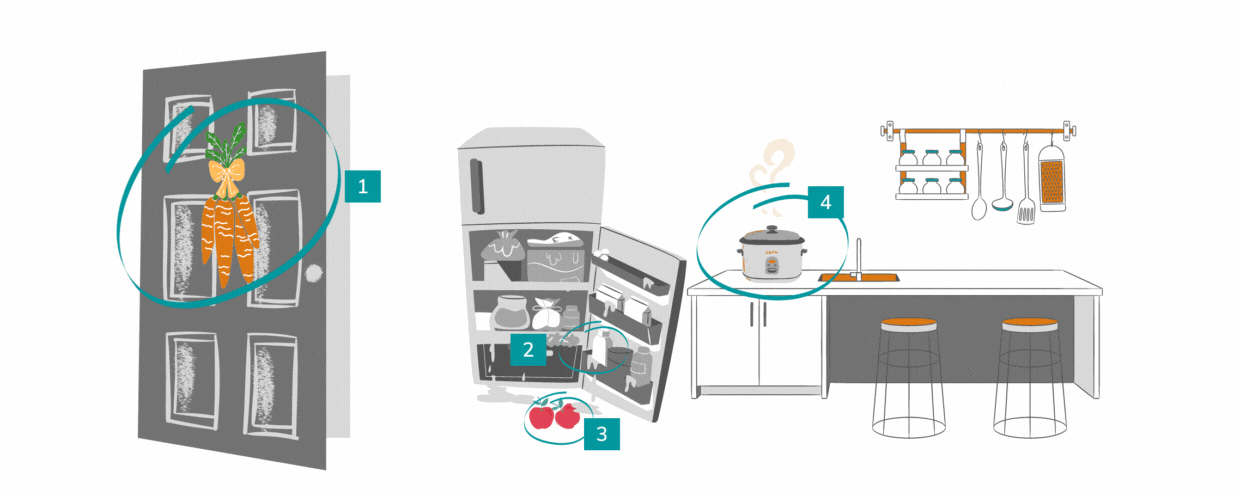
Think of a place you know like the back of your hand. For most of us, this is our childhood home. A memory palace will have you walk around your home with specific items located at specific places.
Yes, the Sherlock Holmes technique is real.
So, for example, you want to memorize your grocery list of carrots, juice, apples, and rice. You might think of going through the patio of your house, seeing carrots hanging by the door. As you enter, you see some juice dripping on apples on the floor. As you head on over to the kitchen, you smell white rice cooked by mom.
A list of 4 items, unfortunately, doesn’t show the power of memory palaces, and the benefits of using this technique grow as your list grows.
How to use PAOs
There are a lot of points to cover and I do recommend you read Foer’s book, but here’s the gist of my favorite parts to help you top the board exams.
Step 1: Associate numbers with letters
The Major System was invented around 1648 by Johann Winkelmann. Each number from 0 to 9 has an equivalent letter (or letters in some cases). They are:
| 0 | 1 | 2 | 3 | 4 | 5 | 6 | 7 | 8 | 9 |
| S | T or D | N | M | R | L | Sh or Ch | K or G | F or V | P or B |
Step 2: Create associations from 00 to 99
Here’s the hard, but incredibly worth it, part. From 00 to 99, list down 100 unique combinations of PERSON-ACTION-OBJECT. Foer calls this the Person Action Object (PAO) System.
Starting with “00,” the Major System translates this to “SS.” I’ve converted “SS” to “SOS.” The first thing I think about when seeing SOS is the Tom Hanks movie Cast Away.

Therefore, my 00 is “Tom Hanks making an SOS on sand.”
- Tom Hanks is my person
- Making an SOS is my action
- Sand is my object
“02” is “SN” according to Step 1, which I convert to “SON.” My 02 is “Gabe left-hooks a 5-foot nose.” Why? Because that’s the first thing I think about.
- Gabe is my person
- Left hook punch is my action
- The 5-foot nose is my object
I’ve made a few exceptions and modifications to the Major System for easy to memorize numbers like my birthday or say 23. To me, 23 means Michael Jordan (or LeBron James for younger people), so my 23 is this “Michael Jordan smoking a Cuban cigar.”
- Michael Jordan is my person
- Smoking is my action
- Cuban cigar is my action
Step 3: Combine the associations for every 6 numbers
Now to the fun part. By using your unique 100-point system, every 6-digit number creates a vivid picture that’s hard to forget.
- 000223: Tom Hanks left-hooks a Cuban cigar.
- 022300: My son smoking some sand. (Wait what?)
- 230002: Michael Jordan writing an SOS on a 5-foot nose.
If I wanted to memorize 000223 022300 230002, all I needed to do was remember these 3 vivid and incredibly memorable pictures.
Tip 4: Be intentional with your schedule
One of the worst things you can do is wing it. If you want to top the board exam, you need to have a schedule. By having a schedule to stick to, you (1) minimize doing actions that result in “20” of the results, (2) you see if the schedule you’re on will allow you to finish covering the materials, (3) friends and family know not to bother you during these hours, and so on.
Time for studying
Study time should be distraction-free. Turn off your phones, the TV, or whatever else distracts you.
I’d even go as far as not studying when it’s not studying time. This has a couple of benefits. First, because you’re deprived of reviewing outside of study time, you then value reviewing more. Humans have a knack for valuing scarce things more.
Second, by batching study time, all of your energy is directed to it. A focused mind retains information a lot easier than a multitasking and distracted mind. And if you didn’t get it already, let me be blunt. Multitasking does not work.
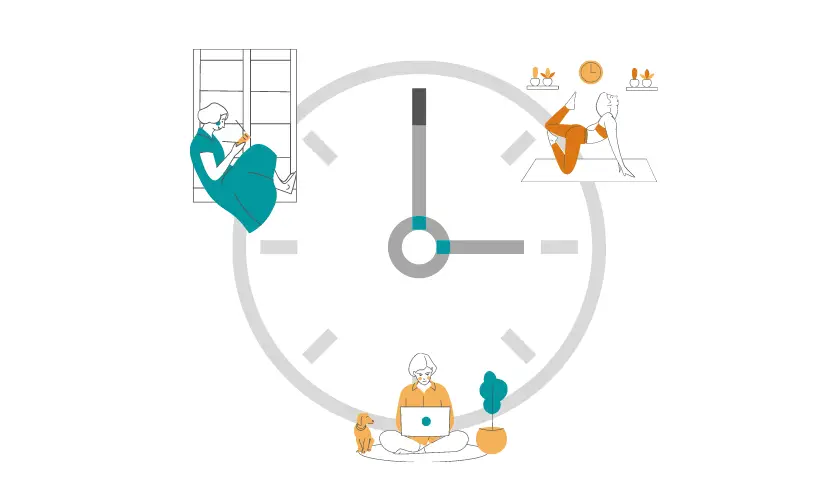
Time for rest
The previous point was quite obvious. What’s less obvious is the time to rest.
Muscle hypertrophy refers to the growth and development of muscles when you put them under stress and then rest. That’s right, growth actually happens during rests.
The same is true when studying for the board exams. You should plan your rests accordingly to avoid the inevitable burnout.
Tip 5: But be flexible as well
This might seem to fly in the face of our previous point, but having a dedicated schedule doesn’t mean you follow it to a T.
Never force anything. If you’re tired, rest. If you have unexpected free time, study.
Having a schedule creates structure, so you should always have that, but do not be a slave to it.
Tip 6: Simulate a board exam environment
The person with the most knowledge doesn’t always get the highest grades because test-taking is actually a skill.
To be good at test-taking, you’ll have to simulate a test environment and answer questions like an actual board exam. It’s very much like athletes training as if it’s game time.
I recommend setting up a timer to answer questions. Aside from simulating a board exam environment and honing your test-taking skills, you also get a feel for how long it takes (and should take) for you to answer a particular type of question.
1-month strategy before the board exams
Instead of cramming more into it, I’ve found the best strategy is to taper study time the month before the board exams.
So how do you study 1 month before the board exams? Unfortunately, there’s no definite answer because my 100% effort may be more or less than your 100%. Tapering down though seems to be the generally accepted approach, which I’ve also found to work. So whatever your 100% is, try to taper it down.
A recovery week benefits pro athletes. We should learn from their methods.
Think of it this way. You’re sacrificing a fresh mind (on exam day or days) because you hope to learn more by cramming. But by cramming you stress yourself. A stressed mind on board exam day will perform suboptimally.
No one performs at 100% on exam day. All we can do is lessen the drop in performance.
How to focus on board exam day
Again, no one performs at 100% on exam day (or days). All we can do is lessen the stressors and the chances of stressors from happening. Besides, knowing that no one can really be at 100% on exam day is kind of reassuring, don’t you think?
Lessen the stressors
- Apply 80:20 when answering questions
- Stay in the middle of the emotional spectrum. Don’t let a question excite or scare you. For the most part, every question is worth 1 point (unless your board exam is different; in that case, practice 80:20)
- Avoid cramming. It doesn’t work. For those who say it does, I guarantee you would’ve done better if you didn’t cram.
- But if you’ve crammed, avoid thinking about how cramming doesn’t work
- Understand that stressors will inevitably come. When you understand, you stop craving for change. When you stop craving, you stop stressing.
Lessen the chances of stressors from happening
- Have a daily routine prior to your board exam day. Follow that routine on exam day.
- Ignore social media and the news on board exam day
Can a retaker top the board exam?
This is a resounding YES! I really believe anyone can. How to top the board exam will ultimately come down to a mix of elements, but it starts with wanting it. By going through the contents of this (long but I hope in-depth) post, you are showing real signs of progress.
I hope these board exam tips and tricks help. They’ve personally helped and I’m happy to share them with the public. Please help me demystify the myth that others are just born smarter by sharing this post. Good luck!
*This post may contain affiliate links. You can read my affiliate disclosure here, Terms & Conditions, #6 Links.
Read more, select a topic:
